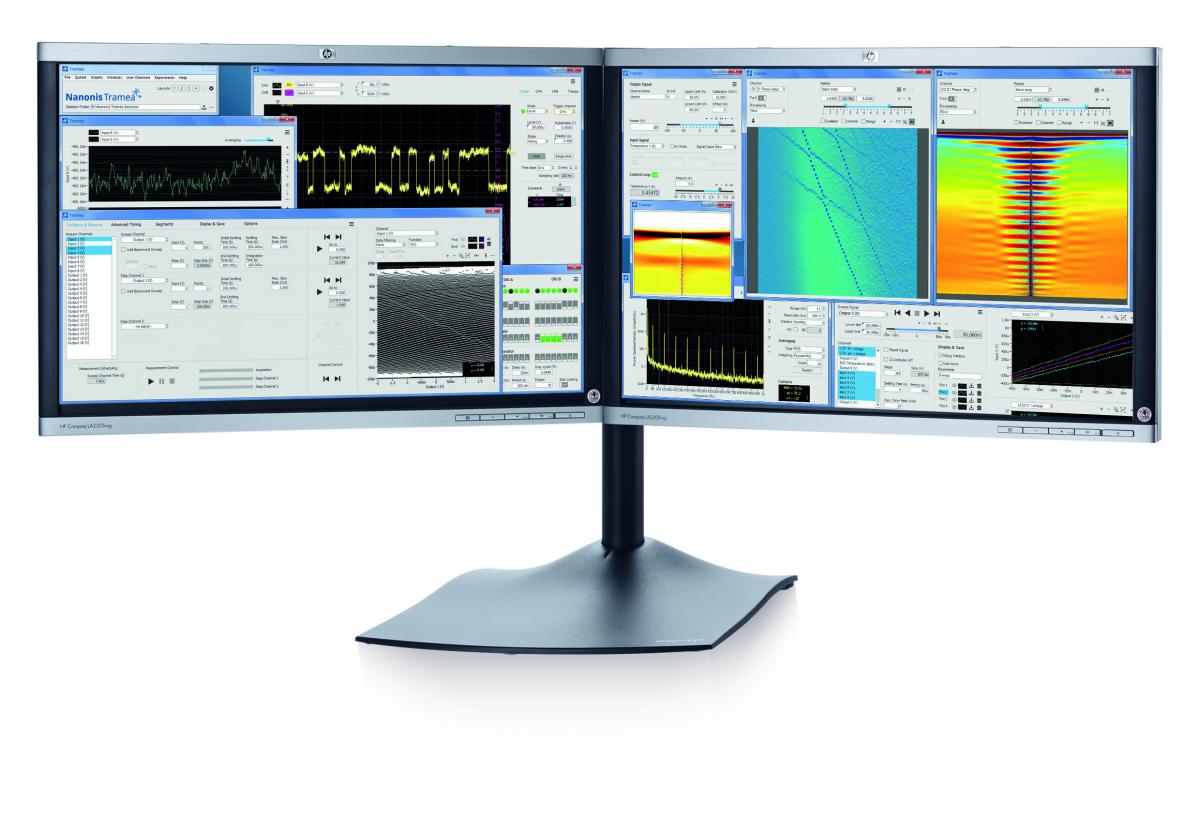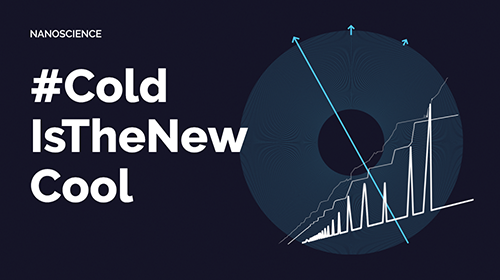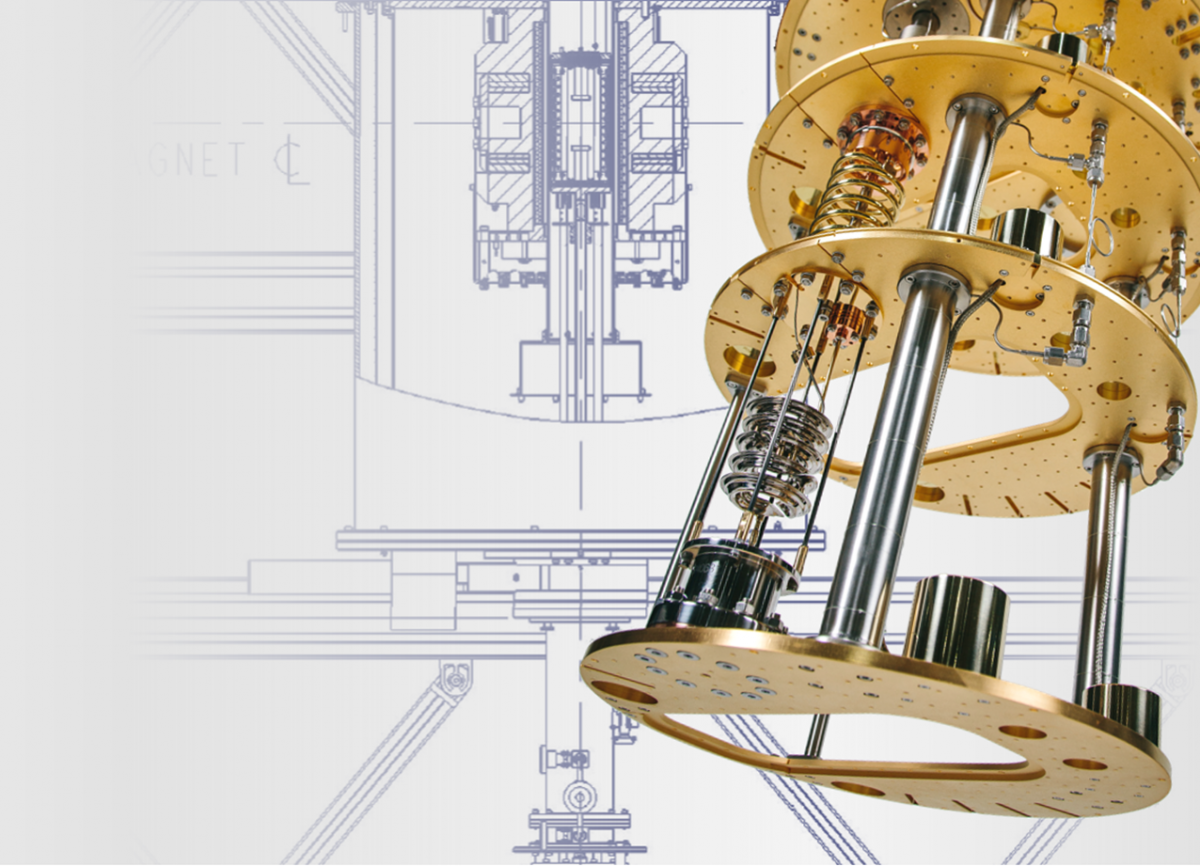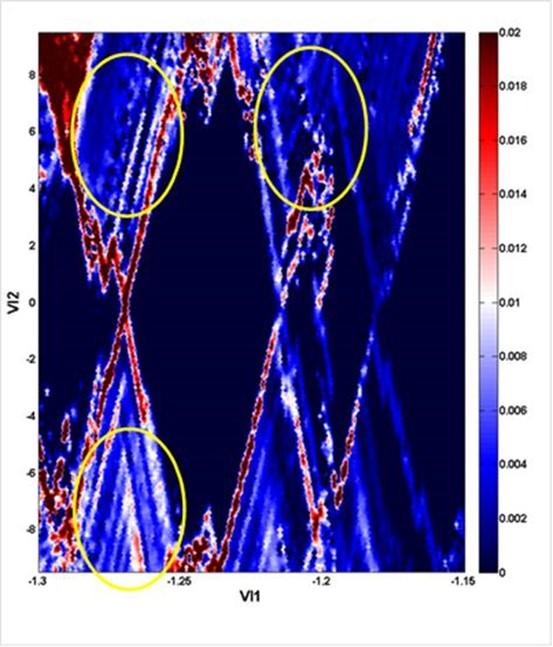The Quantum Hall Effect (QHE) is a quantum-mechanical version of the Hall effect, observed in two-dimensional electron systems subjected to low temperatures and strong magnetic fields. Hall resistance typically increases linearly with field, but for 2D materials at sufficiently low temperatures and high field, the Hall effect is quantised. Physicists have long used standard electrical transport measurements such as resistivity, conductance, and the Hall effect to gain information on the electronic properties and structure of materials. Resistance measured through the QHE now forms the measurement standard, due to the exceptional accuracy which can be achieved through the integer quantised states.
The resolution with which the quantised Hall states can be determined is dependent on the electron temperature of the material, with lower electron temperatures resulting in higher resolution. An ultra-low temperature environment is necessary to reduce sample electron temperatures, and superconducting magnets are required to produce the strong magnetic fields at which this effect is observable.

Integrate Nanonis Tramea with our Teslatron and Proteox product lines for a fully measurement-ready solution.
Simultaneous multi-functionality
Nanonis Tramea is an advanced measurement solution, which combines the functionality of several different single-purpose instruments into a single, high-performance, compact, fully software-controlled package. The system seamlessly interacts with our MercuryiTC temperature control and MercuryiPS magnet power supply electronics, meaning you can control your magnet, cryostat temperature and your experimental routines all in one place.
Nanonis Tramea offers functionality of the following dedicated instruments:
- Precision DC sources
- Lock-in amplifiers
- High-resolution data acquisition instruments
- Oscilloscopes
- Spectrum analysers
- Arbitrary waveform generators
Related Content
Related Products








